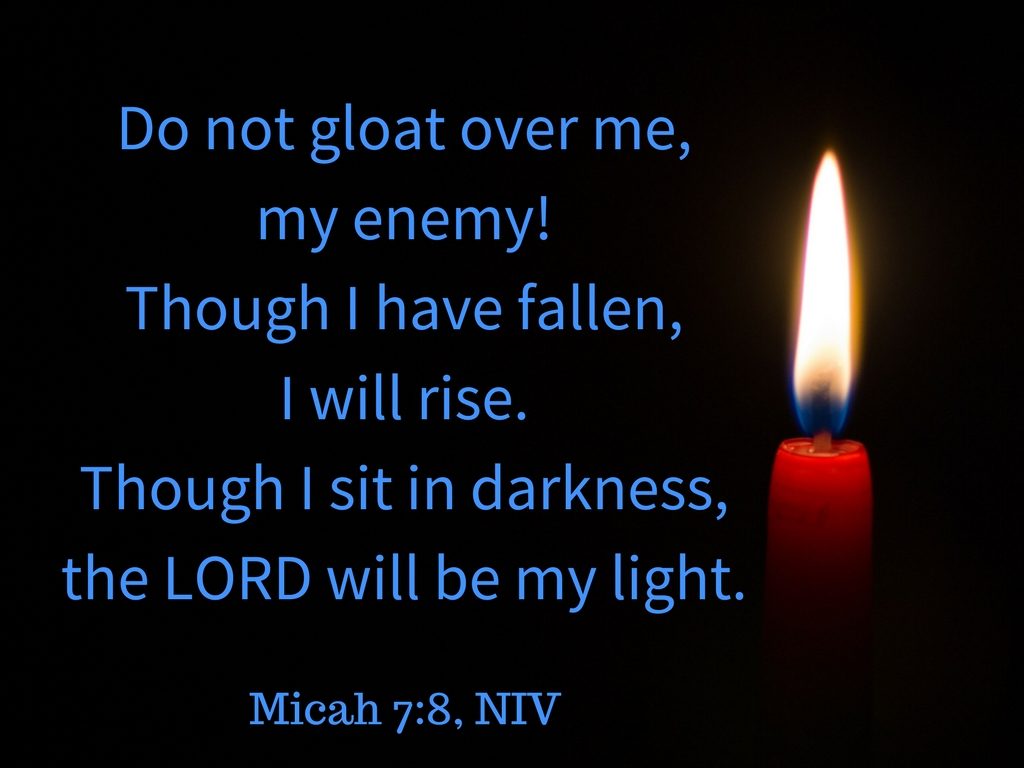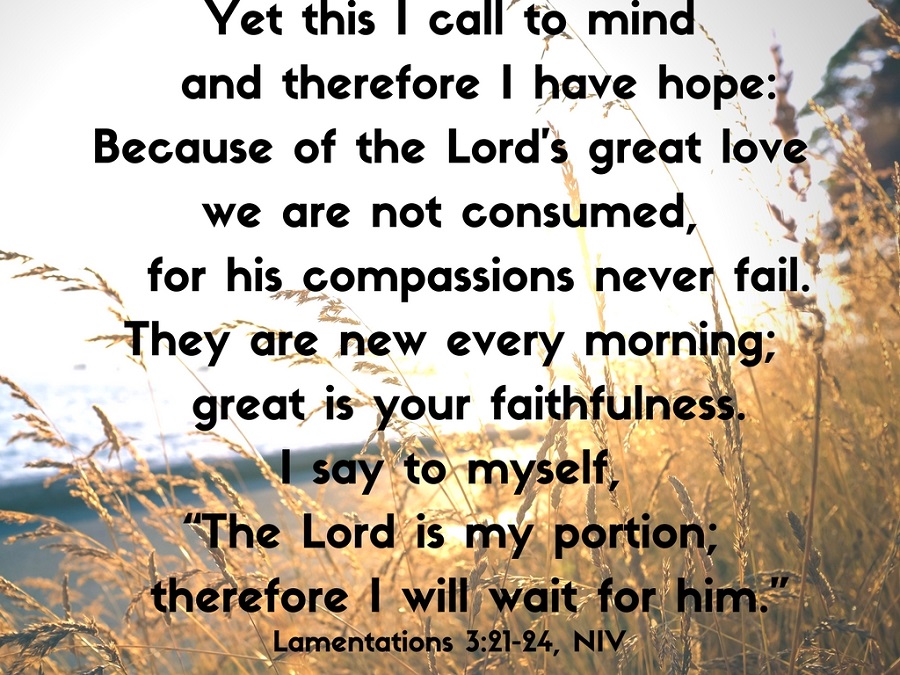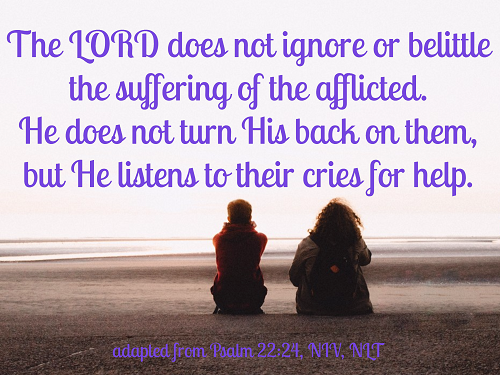For many years, Elisabeth Elliot had a daily radio broadcast called, “Gateway to Joy.” A gateway to joy sounds wonderful, doesn’t it? But this short title came from a statement that Elisabeth often made: “The cross is the gateway to joy.”
Wait. A
cross?
That isn’t the gateway to joy that we were looking for! But I guess that explains why we have been searching without finding because the Cross truly is the gateway to joy.
Although Elisabeth Elliot passed away in 2015, a new book by Elisabeth was published this year by B&H Publishing. Entitled Suffering is Never for Nothing, this book is the transcription of a series of talks which Elisabeth presented many years ago at a small conference. Focused on the topic of suffering, the six messages which she shared that weekend are now the six chapters of this new book.
Foreword
I was eager to read this section because it is written by Joni Tada, whom I appreciate immensely. Joni relates that when she was a young woman, she asked Elisabeth Elliot to preview a book which Joni was writing in which she listed 35 biblical reasons for suffering. When Elisabeth told Joni that her explanations were “a bit technical,” Joni says that she felt crushed (viii). However, after Joni experienced even more suffering in her own life, she came to appreciate Elisabeth’s perspective.
I think the truth that these two God-fearing women insist upon is this: there is a mystery to God-ordained suffering that must remain a mystery on this side of heaven. Job never knew why he suffered as he did; but he learned to be at peace, confident that he could trust God.
Chapter 1:
“The Terrible Truth”
The terrible
truth is that there is suffering. Suffering is our current reality.
The question remains, is God paying attention? If so, why doesn’t He do something? I say He has, He did, He is doing something, and He will do something. (13)
The deepest things that I have learned in my own life have come from the deepest suffering. (9)
The subject can only be approached by the cross. … The very worst thing that ever happened in human history turns out to be the very best thing because it … saves the world. (13)
Chapter 2:
“The Message”
The message
is this: God is with us, and we can trust His character. We don’t need to
understand when we can trust (77). When we suffer, we can trust the One who has
suffered for us.
God, through my own troubles and sufferings, has not given me explanations. But He has met me as a person, as an individual, and that’s what we need. (23)
For myself,
I have found great comfort in knowing that there is an answer to our suffering
even though I do not now know what it is. It gives me peace to know that there
is an answer that is sufficient and satisfying to the One who is all-wise,
all-powerful, and all-loving. I rest in that!
Elisabeth
emphasizes that her faith would have disintegrated” if she had demanded “a
particular kind of answer” from God concerning her suffering. Instead, her
faith was “founded on the character of God Himself” (26). In other words, we
interpret our circumstances according to God’s love, not the other way around.
We do not know why we suffer, but we do know that God’s love is lavish,
unfailing, and absolutely trustworthy.
Chapter 3:
“Acceptance”
Elisabeth stresses that acceptance is “the key to peace in … suffering” (40). We can accept whatever God brings because we are confident of His love. Right now, our job is to trust and obey; later on, it will be our forever joy to understand (John 13:7).
Here is one
of my favorite statements in the whole book:
The love of God … is a willed and inexorable [unstoppable and relentless] love that will command nothing less than the very best for us. The love of God wills our joy. I think of the love of God as being synonymous with the will of God. (41)
I love that! When we know that God is actively loving us into our maxxed-out joy, we can accept suffering (which we do not understand) because of God’s goodness (which we trust). (Read more about the goodness of God HERE.)
The will of God is love. And love suffers. … Love is always inextricably bound with sacrifice. (41)
We are not adrift in chaos. We’re held in the everlasting arms. (44).
Chapter 4:
“Gratitude”
The next step, after accepting God’s will, is to express gratitude. Elisabeth says that gratitude is a shortcut to knowing God. Gratitude reminds us that we “are not adrift in a sea of chaos” (67).
So, what is there to be grateful for in the midst of suffering? Well, God is still love. … God is still God. … Before the foundation of the world, He knew [about this situation]. So He wasn’t taken by surprise. Love still wills my joy. (67)
Gratitude is important because it honors God and because it prepares the way for God to show His salvation (Psalm 50:23). Expressing gratitude to God helps us to enter the Presence of God (Psalm 100).
It is in these very situations which are so painful … that thanksgiving can prepare the way for God to show us His salvation. (74)
Certainly, that is true! When you treasure the Lord in places of darkness, the treasures of God are revealed to you (Isaiah 45:3).
Elisabeth shares her “amazement and delight” in learning that the Hebrew word for burden “is the same word as the word for gift” (72). She says, “If I thank God for this very thing which is killing me, I can begin dimly and faintly to see it as a gift” (73).
Chapter 5:
“Offering”
Realizing that a burden is also being a gift leads well into this fifth chapter, which is the meatiest of all, I think. There are three main points:
1. Everything
we have is given to us as a gift.
Elisabeth
says:
Everything in my life I begin to see as a gift, and I do mean everything.… even my widowhood. I began very slowly to recognize … that it was within the context of widowhood that God wanted me to glorify Him. … It was something that God not only allowed, but in a very real sense, He had given me because He had something else in mind. And this was a gift not just for me, but also for the life of the world…. (76-77)
2. Everything
we have is something to offer back to God as a sacrifice. All that we have
can be offered up to God “for the life of the world” (82). Everything “is
potential material for sacrifice” (84).
I appreciate the fact that Elisabeth includes her painful feelings and her negative emotions in this “everything” which is material for sacrifice. For example, Elisabeth was often asked how she handled loneliness in her life. She always explained that she could not handle loneliness—or discouragement, or despair. But she could offer it as a sacrifice to the Lord. Her loneliness became an offering to the One who could handle it (84).
3. Our
greatest offering is obedience (77). The “highest form of worship is
obedience” (86).
Here is a
great truth: “there is no consolation like obedience” (87). We forget that,
don’t we? Yet how much comfort we could gain if we believed this!
Through our
obedience in the midst of our suffering, we become like “broken bread and
poured out wine for the life of the world” (87). That gives our lives rich
meaning and high purpose, does it not?
Our lives
are evaluated not by how much we accumulate or accomplish but rather by how
much we give. The most important measure of our lives is what we sacrifice
through our offerings of love and obedience. As Elisabeth concludes this
section on offerings, she shares this quote by Ugo Bassi: “Measure your life by
loss and not by gain, not by the wine drunk, but by the wine poured out. For
love’s strength standeth in love’s sacrifice …” (89).
Chapter 6:
“Transfiguration”
Elisabeth
discusses the principle of transfiguration, the perspective of transfiguration,
and the paradoxes of transfiguration.
If we receive the things that God wants to give us, if we thank Him for them and if we make those things an offering back to God, then this is what’s going to happen—transfiguration. (93)
As we pour
ourselves out for others, we find that we ourselves are strengthened (Isaiah
58). Elisabeth calls this the principle of transfiguration. As Proverbs
11:25 says, “He who waters will himself be watered.”
Life comes out of death, just as a seed must be buried in the ground in order to bring a great harvest.
Our perspective
is transfigured through suffering. As we endure, we begin to see “Him who is
unseen” (Hebrews 11:27). We begin to understand that our suffering is achieving
true glory.
All of this,
of course, involves profound paradox. God is a transforming God. He turns
deserts in springs, ashes into beauty, mourning into joy, and humiliation into
glory (104).
We are privileged
to offer to God all that we are and all that we have and all that we suffer. God
then transforms this sacrifice “for the life of the world”; and He transfigures
us into men and women of joy.
There is … no redemptive work done anywhere without suffering. (104)
Suffering is
never for nothing.













































